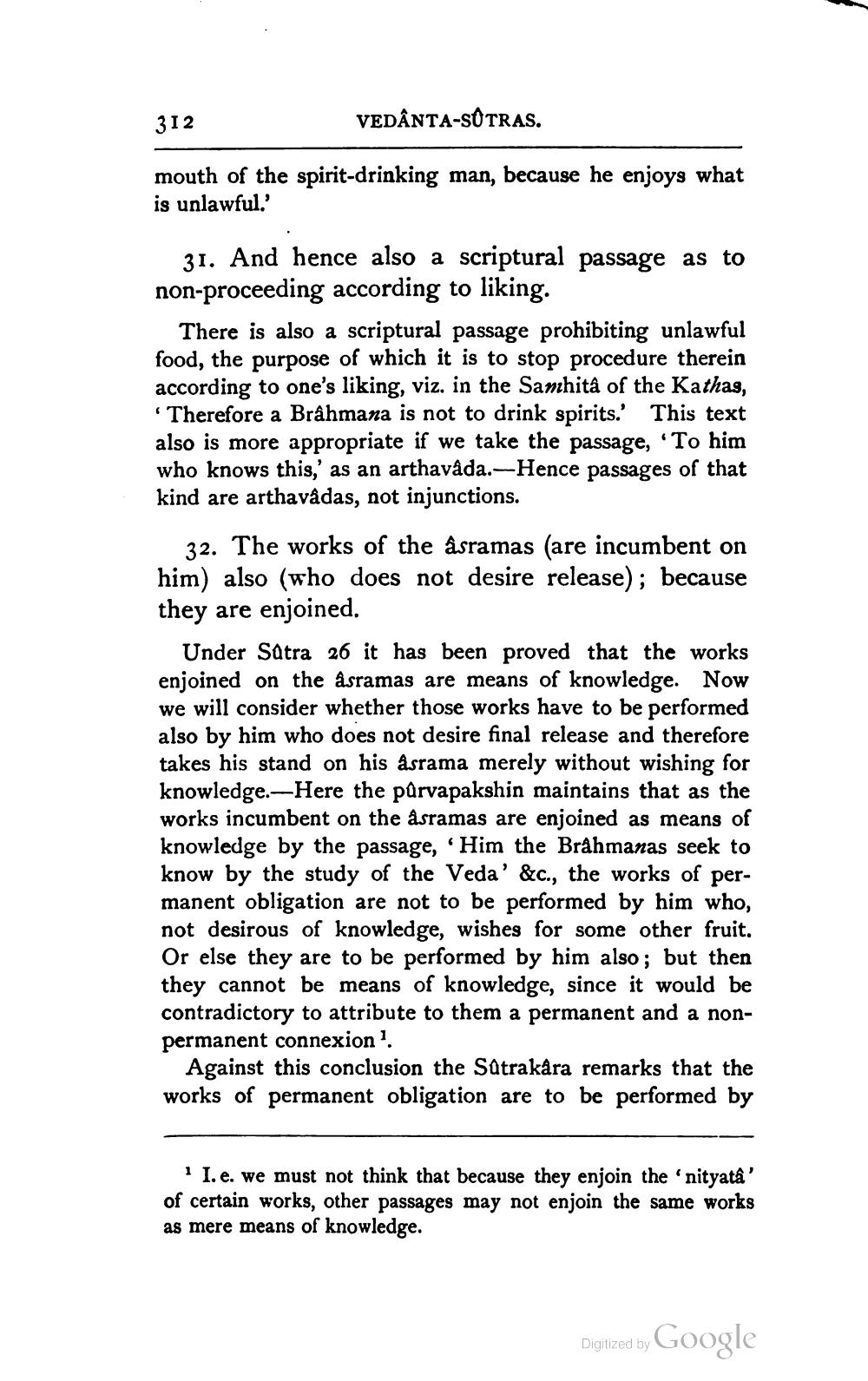________________
312
VEDÂNTA-SOTRAS.
mouth of the spirit-drinking man, because he enjoys what is unlawful.'
31. And hence also a scriptural passage as to non-proceeding according to liking.
There is also a scriptural passage prohibiting unlawful food, the purpose of which it is to stop procedure therein according to one's liking, viz. in the Sanhita of the Kathas, 'Therefore a Brâhmana is not to drink spirits.' This text also is more appropriate if we take the passage, ‘To him who knows this,' as an arthavada.-Hence passages of that kind are arthavadas, not injunctions.
32. The works of the asramas (are incumbent on him) also (who does not desire release); because they are enjoined
Under Satra 26 it has been proved that the works enjoined on the asramas are means of knowledge. Now we will consider whether those works have to be performed also by him who does not desire final release and therefore takes his stand on his asrama merely without wishing for knowledge. Here the pūrvapakshin maintains that as the works incumbent on the asramas are enjoined as means of knowledge by the passage, 'Him the Brahmanas seek to know by the study of the Veda' &c., the works of permanent obligation are not to be performed by him who, not desirous of knowledge, wishes for some other fruit. Or else they are to be performed by him also; but then they cannot be means of knowledge, since it would be contradictory to attribute to them a permanent and a nonpermanent connexion
Against this conclusion the Satrakara remarks that the works of permanent obligation are to be performed by
' I. e. we must not think that because they enjoin the 'nityata' of certain works, other passages may not enjoin the same works as mere means of knowledge.
Digitized by
Digilzed by Google




